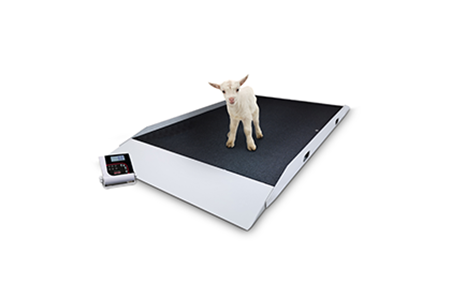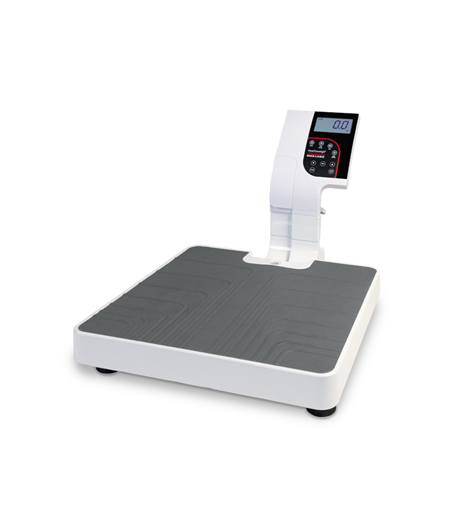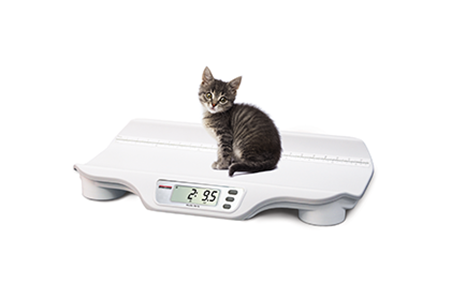Is the website displaying in the correct language? Please confirm or select a different language.
Your region has been set automatically. Please confirm or select a different region.
Maintaining Veterinary Scales
Many medication dosages are determined and prescribed based on animal weight. Therefore, your veterinary scale must be properly maintained to ensure accuracy.
Find the Best Place for Your Scale While in Use
Your scale must be on a flat, hard surface with no padding or carpeted floors. Weight readings may be inaccurate if the scale isn’t placed on a level surface. It is also essential that all ramps are accessible to patients (they must not face the wall) and that the scale fits your space correctly. If you want to place a scale in a particular location, the number of ramps on the scale can affect the placement.
Some veterinary scales are portable, which allows the operator to move them easily and clean under or around the scale when needed. You may also move a portable veterinary scale to different rooms to better assist multiple animals, or determine weight prior to surgeries.
Store Your Scale in a Safe Place
When your scale is not in use, store it in a clean, dry place and avoid areas with high humidity and potential for water on the scale. Humidity and water can negatively affect your scale.

Perform Basic Scale Maintenance
Similar to any other piece of equipment, you must perform a few basic maintenance tasks to ensure the scale stays accurate. You should check the overall appearance of the scale to ensure there are no apparent signs of damage (dents, cracks, scratches, etc.) and inspect the wall power supply (AC adapter) to ensure it is intact and safe to use. Only use the power supply supplied or recommended by Rice Lake. Lastly, some scales will indicate a low battery life on their display; change the batteries as soon as you notice the low-level indicator to avoid disruptions in your day-to-day tasks. Weights should not be dropped onto the scale; this is called a shock load and can harm the scale. Always gently place the weights in the center of the scale when checking for accuracy.

Thoroughly Clean Your Scale
Proper care and cleaning are essential to ensuring your scale has a long life. You must turn the power off and disconnect the scale from the AC power source before cleaning it. Start by cleaning all external scale surfaces with a clean, damp cloth and mild soap and water. Never immerse the scale in cleaning solutions for water as this can damage the scale electronics. Dry the entire scale with a clean, soft cloth before finally reconnecting the scale to the AC power source and turning the scale back on.
Learn How to Check Your Scale for Accuracy
It is important to check your scale for accuracy to make sure it’s ready to meet veterinary weighing standards. Do not use bodyweight or consumer barbell weights—barbells may not always be accurate. You should only use certified calibration weights to guarantee your scale’s reading is correct. Refer to your technical manual to determine the proper amount of weight needed and how to calibrate your scale. If you misplaced your manual, you can locate a digital copy on the manufacturer’s website, or contact your scale distributor.

Rice Lake Solutions
Rice Lake Weighing Systems offers a variety of veterinary scales to best suit the needs of your facility. For more information or questions, contact a Rice Lake veterinary scale expert.



 My Account
My Account


